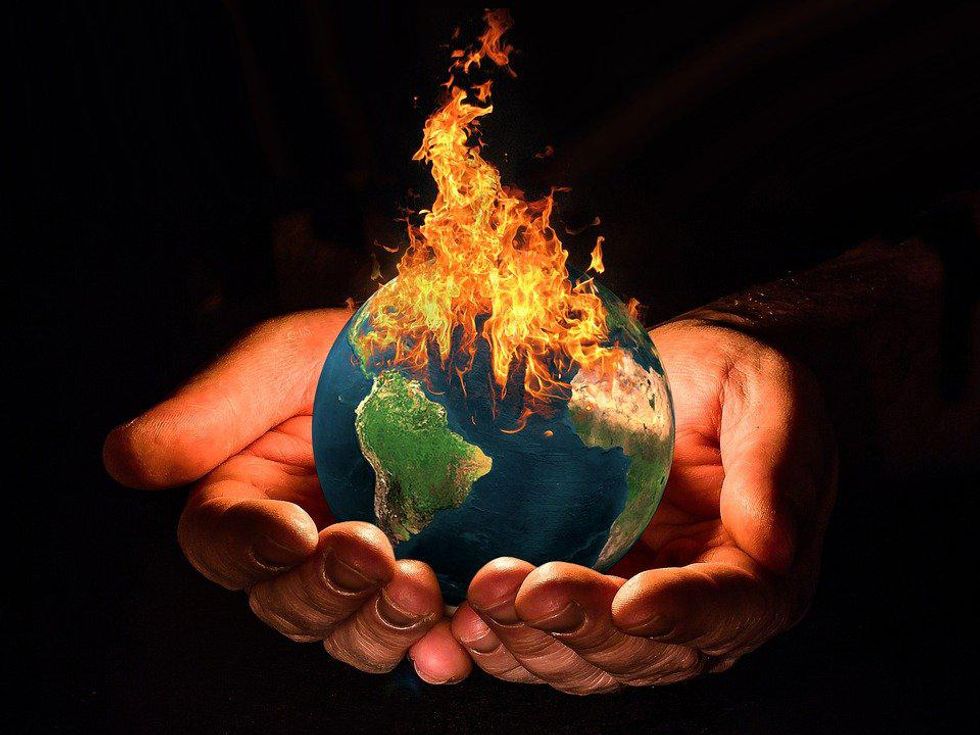Late last month Vladmir Putin, Russian president, broadcasted to the masses a declaration of war on the independent country of Ukraine. Putin sent several missiles and thousands of soldiers to Ukraine in order to, what he claims, defend the Russians in Ukraine against the Neo-Nazis running the country. This attack takes place after ties were strained between Ukraine and Russia after Ukraine pushed to become part of NATO. Putin claimed that the Eastern expansion of NATO towards Russia was a threat of Russian freedoms and values. Diplomacy was lost, war has now ensued, and the threat of a nuclear war could potentially be on the horizon. As we’ve seen from previous World Wars, nothing good comes from nuclear attacks. Nuclear weapons can cause inevitable death for those in and around target areas. Even those not hit by nuclear weapons can be affected by the nuclear fallout that ensues after an attack. This can cause debilitating cancers from the uptick in radiation and several other diseases and illnesses. The Earth and its ecosystems are also victim to catastrophic losses. In our current climate conditions, these are losses we cannot afford.
As it’s been determined by scientists, the Earth has been undergoing serious climate change for some time due to a myriad of different factors dictated by the actions of the human race. Huge volumes of pollution, over-fishing, and deforestation cause for large changes in the environment and it’s several different ecosystems. Our climate is one of the many things changing as the effects of pollution and environmental devastation weigh on us more and more.
When nuclear weapons detonate, they release radioactive particles which we call “nuclear fallout.” Fallout is made up of several materials, mostly weapon debris and products of nuclear fission. Fission products consist of small atomic fragments that have half-lives of seconds to months. These products, along with radioactive soil, mostly fall down to earth immediately after the explosion. In this case, the only affected area would be the explosion site and a large radius around it. Some of this fallout, however, is released high into the atmosphere and can change and move with weather patterns. This fallout can be distributed over several hours, days, and even months following nuclear explosion. It’s radioactivity, however, can last even longer.
The radiation released from a nuclear weapon is referred to as ionising radiation, and it can permanently affect and damage the structure of DNA in cells. This can affect most of the organisms we find on Earth. The resulting environmental changes we would receive could cause complete destruction of entire ecosystems, extinctions of species, and global food shortages due to soil contamination, among many other things.
If it is not already clear, the resulting affects of nuclear detonation and radiation could significantly increase the impacts of the climate change we’re already experiencing. Scientists have predicted that we do not have much time left before the environmental damage we’ve already inflicted and continue to inflict is irreversible. A nuclear war could shorten that time significantly. It could potentially leave large parts of our world uninhabitable for years on end, as we’ve seen with the explosion at the Chernobyl Nuclear Power Plant. Yes, countries have harnessed the power of an atom and can use it to inflict not only damage but long lasting devastation. The use of that, however, could cause massive global and climate issues affecting not only the target country, but the country responsible and the entire world as well. Is it really worth the idea of total mutual destruction?


















